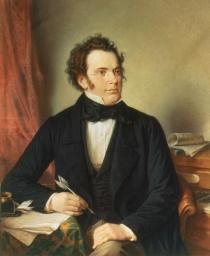Woods Mill
 Thursday 24th May, still very warm; a luminous overcast.
Thursday 24th May, still very warm; a luminous overcast. Tuesday evening, the first actually warm evening of the year, as the sun set like a luscious red blood-orange, we drove out to the Sussex Wildlife Trust HQ at Woods Mill, to hear the nightingales. Which we duly did, sitting on the worn grey oak bench under a thorn thicket by Nightingale Bridge, a blackbird couple scolding us for camping on their doorstep. As on previous occasions kind of wondered what the fuss is about*. Glug, flugggle gluggle, wheep wheep tuiu tuiu. Our domestic blackbirds seem much more musical, esp the one who sings at dawn, every morning, outside our house. And the one (could be the same songster?) who grandstands on the chimneypots opposite my window, at the close of day... But Woods Mill itself was in beautiful form, May blossom and chestnut flambeaux almost back to Houseman's settings this year (ie, just about to fade at the end of May), cow parsley in hazy glimmering masses all along the paths. Thrushes shouting, a small grass-snake swimming along in the stream, a hovering kestrel above the Barn Owl Meadow (where the kestrels now have a nesting box, and reared five last year). Never free from the sound of traffic, but you can't have everything. Nightingales, and a cuckoo's song, shouting away in the dusk, somewhere off in the woods, and the evening stars coming out overhead, in an extraordinary deepening golden-green sky. Such a feeling of privilege, and gratitude, what did we do to deserve this.
*We met the warden on the way out, and he told us the nightingales sing better when they do their second show, around 11.30pm, when there's no competition. We'll bear that in mind. The creatures making extraordinary noises in the big pond, snuffling and sneezing and flopping (too dark for us to see their origin) are the big carp.
Watching: Bit stuck for anything to watch, now Homeland's gone (will I watch the second series? Probably not, I can tell when a programme is getting a little LOST, know what I mean?). And Scott and Bailey is over (I could tell you who it is Rachel sees sitting by her mum in the pub, in that parting shot. But I won't as my "guesses" often turn out to be right, and then it's a spoiler, innit); and The Bridge too (Saga was a splendid invention, a woman after my own heart, but who's idea was that worthless mash-up of a plot?. Actually, I suspect it was a lot of people, all thinking they were writing separate self-contained episodes of a police procedural, but then at the last moment, some nutcase decided it was to be a single, through-composed storyline. So! What to do! Saw off the resolution part of each episode, and just ravage them, weld them all together, any which way...
But now it doesn't make sense the poor mugs of writers wail?
Nah, shut up, no problem. Life doesn't make sense, and the punters will never worry, anyhow.
Oh well, back to my jigsaw and The Great British Menu. Which has the beauty of being amazingly daft this time.
Reading Elsa Osorio, My Name Is Light, an Argentinian novel written as the personal account of one of them, about the stolen children of The Disappeared (victims of the military junta, 1976-1983). Came to this via Clea Koff's The Bone Woman, which I read and greatly admired last year, which in turn lead me back to Christopher Joyce and Eric Stove's Witnesses From The Grave, which is largely the story of Clyde Snow, and the birth of forensic anthropology, the technique for nailing the perpetrators of genocide and other "extra-judicial" massacres, he and a group of young Argentinians pretty much founded. But now, and strangely, from Osorio's angle, the political struggle all but disappears. In this world there are no ideas, words like "social justice", "communism", "police state" mean nothing. There are only sensual responses, it's a naked Gender War. Nature red in tooth and claw, women and their babies, versus men and their hierarchies of power, erotic allure versus brutal physical force. Creepy but compelling
Giving Medical Foundation For the Care Of Torture Victims. Check out what they do. You already know how much the torture victims who arrive in this country need protection
Writing News: Lynne Jamneck's excellent and very well-reviewed Lesbian themed sf anthology Periphery is now available in e-book format. Check out her blog for venues: http://lynnejamneckdiaries.blogspot.co.nz/
Also the action on the Authorlink mailing list, which is currently all about the loving and intimate, (did someone say corrupt?)links between Google and our PM, constantly in each other's pockets. Sweet.

And before I forget (again) the best fun (in English) on the Beneluxcon programme, and the best science fiction con, totally and convincingly straightfaced "scifi science" feature I've seen in a long time, was the lightsaber talk, and I was going to post about it but I didn't so here's the link: http://dickgrune.com/Misc/LightSaber/
The blossoming May tree was at Burwash, two years ago.



 you (in the absence of antibiotics), I don't see any mystery, and you could say he got off lightly. The sublime, unbearable sadness of his late and greatest music, the intense poignancy in the happiest, is also held by some to be a puzzle, since what, in his uneventful, modest, lower-middle-class biography prepares one for such intensity? Well, I don't know. He knew his own worth (and he was dead right). He knew he'd contracted a shameful, hideous disease that was going to kill him by inches; that all his hopes were blighted, his chances of love and happiness destroyed. He "lived with death as a constant companion for five years", and came to terms with this dark angel, faithful friend, in the language of a composer of genius. What does his class background, and failure to play before the Crowned Heads of Europe have to do with it?
you (in the absence of antibiotics), I don't see any mystery, and you could say he got off lightly. The sublime, unbearable sadness of his late and greatest music, the intense poignancy in the happiest, is also held by some to be a puzzle, since what, in his uneventful, modest, lower-middle-class biography prepares one for such intensity? Well, I don't know. He knew his own worth (and he was dead right). He knew he'd contracted a shameful, hideous disease that was going to kill him by inches; that all his hopes were blighted, his chances of love and happiness destroyed. He "lived with death as a constant companion for five years", and came to terms with this dark angel, faithful friend, in the language of a composer of genius. What does his class background, and failure to play before the Crowned Heads of Europe have to do with it?